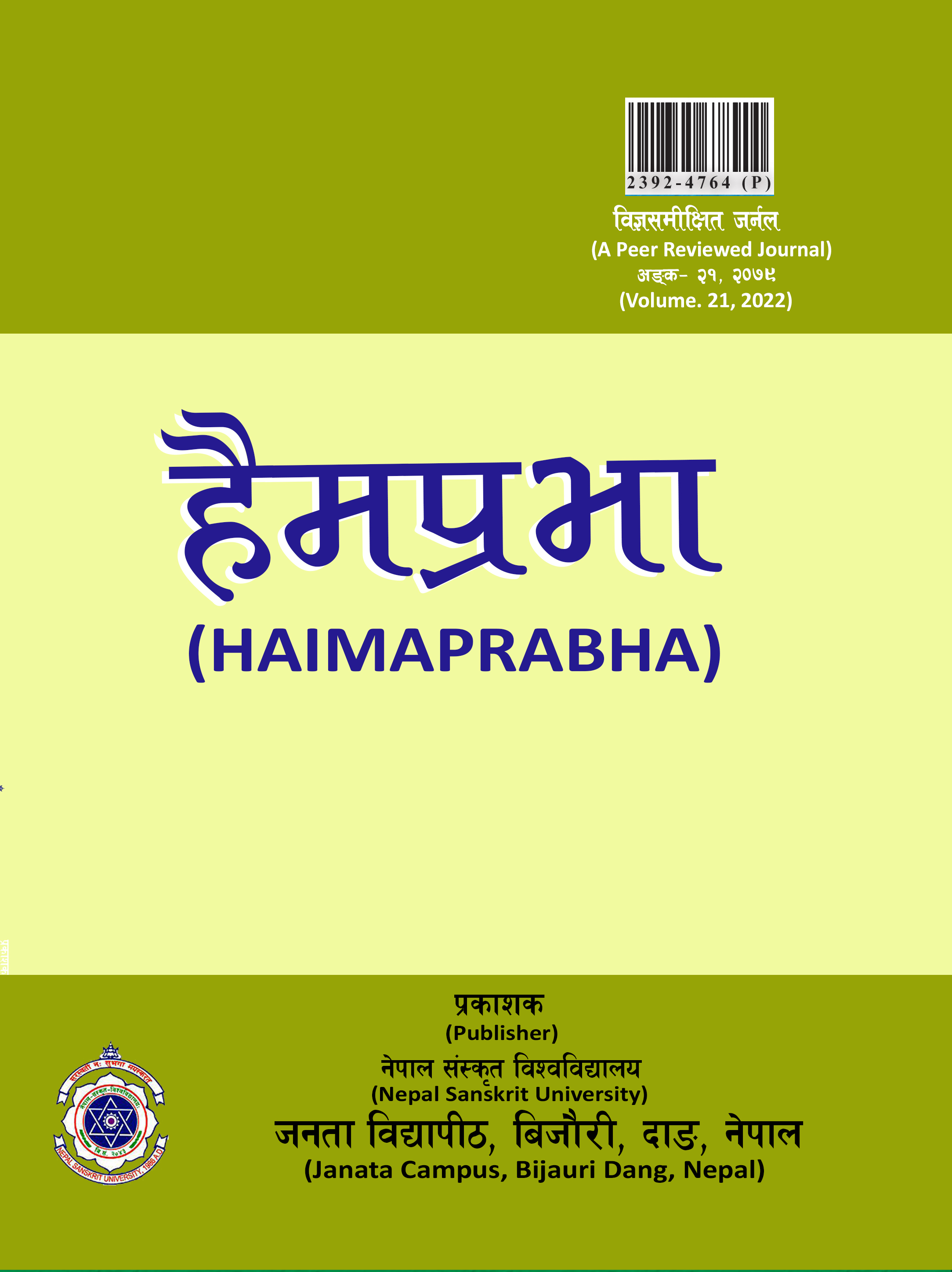Women and Nature in Abhijnanashakuntalam: an Eco-feminist Study
DOI:
https://doi.org/10.3126/haimaprabha.v21i01.44870Keywords:
Feminine, patriarchy, hermit girl, foster mother, dualismAbstract
This article aims to oversee the relation between women and nature in Kalidasa’s play Abhijnanashakuntalam. The researcher has tried to dig upon the concept of eco-feminism seen in the play by depicting the close relationship between women and nature. Kalidasa’s Abhijnanashakuntalam underscores the patriarchal structure based on dualisms like men/woman, masculine/ feminine, culture/ nature, and spiritual/material, which destabilizes the system based on the hierarchy of the traditional gender roles. Qualitative analysis has been done by assessing eco-feminist theory as a method of study. It is found that the heroine of the play Shakuntala has been presented as a nature’s child as shown her relation with plants, peacocks and deer. It is also the projection on, how the identity, status and destiny of women remain intertwined with those of nature globally as far as their impoverishment, exploitation, marginalization, abrogation, depletion, commoditization and subjugation are concerned. Kalidasa has tried to depict interdependence of two elements; nature and human emotions which has been discussed in this paper.
Downloads
Downloads
Published
How to Cite
Issue
Section
License

This work is licensed under a Creative Commons Attribution 4.0 International License.
© Nepal Sanskrit University, Janata Campus, RMC, Bijauri Dang, Nepal

